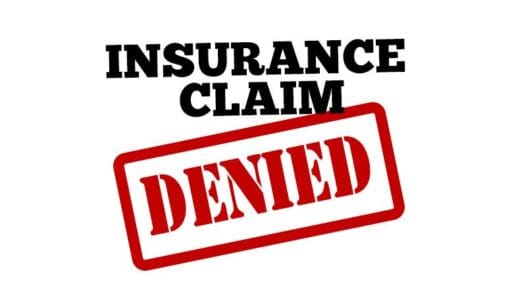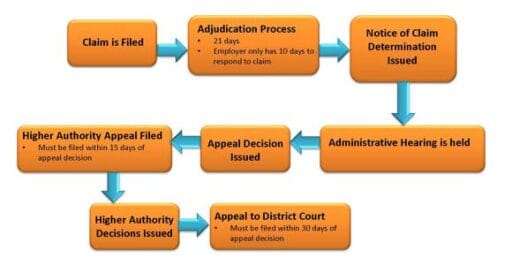Navigating the world of insurance claims can be a daunting task, especially when faced with the frustration of a denial. From missing information to coverage disputes, there are numerous reasons why an insurance claim may be denied. However, all hope is not lost. In this article, we will explore some of the common reasons for insurance claim denials and provide guidance on how to effectively appeal these decisions. So take a deep breath and read on to learn how to fight back against denied claims and secure the coverage you deserve.
1. Understanding the Most Common Reasons for Insurance Claim Denials
In the world of insurance claims, denials can be a frustrating experience for policyholders. Understanding the most common reasons for claim denials can help you navigate the appeals process more effectively. Some common reasons for denials include lack of coverage, incomplete or inaccurate information on the claim, and failure to meet policy requirements.
When faced with a denied insurance claim, it’s important to carefully review the denial letter and understand the specific reason for the denial. Once you have identified the reason, you can gather any necessary documentation or information to support your appeal. Be sure to follow the appeals process outlined in your policy, and consider seeking assistance from a legal or insurance professional if needed. By understanding the reasons for insurance claim denials and knowing how to appeal, you can increase your chances of successfully overturning a denial and receiving the coverage you deserve.

2. Strategies for Successfully Appealing Insurance Claim Denials
When faced with insurance claim denials, it’s important to understand the common reasons behind them so you can effectively appeal the decision. One common reason for denials is incomplete or inaccurate information provided in the initial claim submission. To avoid this, double-check all documentation before submitting your claim. Make sure all required forms are filled out accurately and completely.
Another common reason for denials is not meeting the requirements of your policy. Familiarize yourself with your insurance policy in detail to ensure your claim aligns with the coverage outlined. If you believe your claim meets all criteria but was still denied, gather as much evidence and documentation as possible to support your appeal. Presenting a strong case with supporting documents can greatly improve your chances of a successful appeal.

3. Expert Tips for Maximizing Success in the Insurance Claim Appeal Process
In the insurance claim appeal process, it is crucial to understand the common reasons for claim denials in order to maximize success. One of the most frequent reasons for denial is incomplete or inaccurate information submitted with the initial claim. To increase your chances of a successful appeal, make sure to double-check all documentation and provide any additional information that may strengthen your case.
Another common reason for claim denials is lack of medical necessity. If your claim was denied on these grounds, consider obtaining a detailed explanation from your healthcare provider and include it in your appeal. Additionally, it can be helpful to consult with a legal professional or insurance specialist who can provide guidance on navigating the appeals process and increasing your chances of a favorable outcome.

4. Navigating the Appeals Process: A Step-by-Step Guide to Reversing Denials
When dealing with insurance claim denials, it’s important to understand the common reasons behind them in order to effectively appeal and reverse the decision. Some of the most frequent causes for claim denials include:
- Incorrect information: Mistakes in policy numbers, patient information, or treatment codes can lead to denials.
- Lack of authorization: Some procedures require pre-approval from the insurance company, and failing to obtain this can result in denial.
- Out-of-network providers: Visiting a healthcare provider outside of the network covered by your insurance can lead to claim denials.
When facing a claim denial, it’s crucial to follow a step-by-step guide to navigate the appeals process. This may involve collecting all relevant documentation, reviewing the denial letter for specific reasons, drafting a formal appeal letter, and following up with the insurance company to ensure that all necessary information is provided for reconsideration. By understanding the reasons behind claim denials and taking the appropriate actions to appeal, individuals can increase their chances of reversing the denial and getting the coverage they deserve.
In Summary
In conclusion, understanding the common reasons for insurance claim denials and the steps to appeal can be crucial in ensuring that you receive the coverage you deserve. By being informed and proactive, you can navigate the appeals process with confidence and hopefully resolve any issues that may arise. Remember, persistence and patience are key in dealing with insurance claim denials. Stay informed, stay vigilant, and never give up on advocating for your rights as a policyholder. Good luck in your appeals process!
